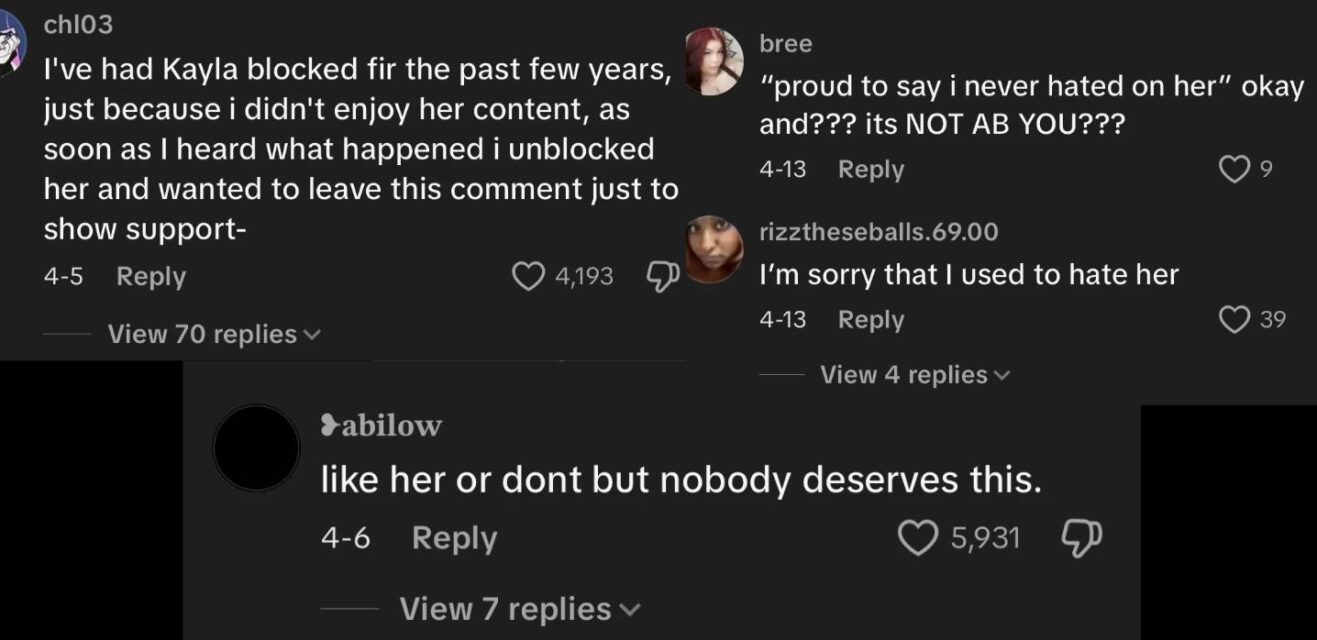Trigger Warning: This story contains mentions of domestic violence and public scrutiny. If you or someone you know is struggling at the hands of domestic violence, please contact the domestic violence hotline at 800-799-7233, or UMBC campus police at 410-455-5555.
Last month, as many users were scrolling through TikTok, they likely came across a video from a popular creator named Kayla Malec. The video portrayed Malec in tears as she showed viewers several injuries located on her face and neck, quickly discovering that the wounds were inflicted on her by her former boyfriend.
Malec created two YouTube videos about her abusive relationship and her experience with domestic violence (DV). After her story was uploaded on the internet for the entire world to view, it was extremely analyzed. The reactions from viewers online raised the question: how are women treated when speaking out about their DV experiences, and why?
It would be factually incorrect to say that DV does not affect men, but, the ways in which intimate partner violence affects men and women are very different. When reading the comments on Kayla Malec’s TikTok posts discussing her experience with DV, a common theme was noticed. A majority of people began their comments by stating that they did not like Malec before validating the abuse she endured.
It is no secret that women’s personalities and credibility are often scrutinized in situations of DV. In general, women are heavily chastised and picked apart by the public. So when a woman like Kayla Malec is put in the position to publicly share her story, people’s opinions, either negative or positive, crowd the view of the situation.
According to Connections for Abused Women and their Children (CAWC), common misconceptions can lead to negative feelings towards DV survivors. These include the beliefs that someone can simply escape abuse or that the victim provoked the abuse. The misconceptions surrounding DV create the opposite of a safe space for survivors, where women do not feel comfortable reaching out for help or seeking criminal justice.
Other negative feelings towards female victims can stem from the misogynistic nature in which men are raised. When men are taught either directly or indirectly that women are meant to submit to them and that men should be dominating towards women, it creates the perfect combination of social values which welcome abuse. In turn, women accept the pedestal men are placed on and learn that most of the time, they will be denied, blamed, or judged simply because they are women.
Even though women experience negative reactions when speaking out against their abusers, there is hope in creating spaces where the voices of female survivors of DV are heard and women are given the support they need to grow and thrive.
Kayla Malec, whose story about DV has been discussed heavily online, also had millions of views and comments from people who showed love and support for her and her healing. These comments were overwhelming compared to the negative ones. There are support groups, therapies and shelters which provide support for women who have similar experiences. There is a sliver of positivity within the mass amounts of social pressure and judgment.
Katie Phucas is a freshman individualized studies major and an opinions reporter for The Retriever.
Contact Katie at kphucas1@umbc.edu.

